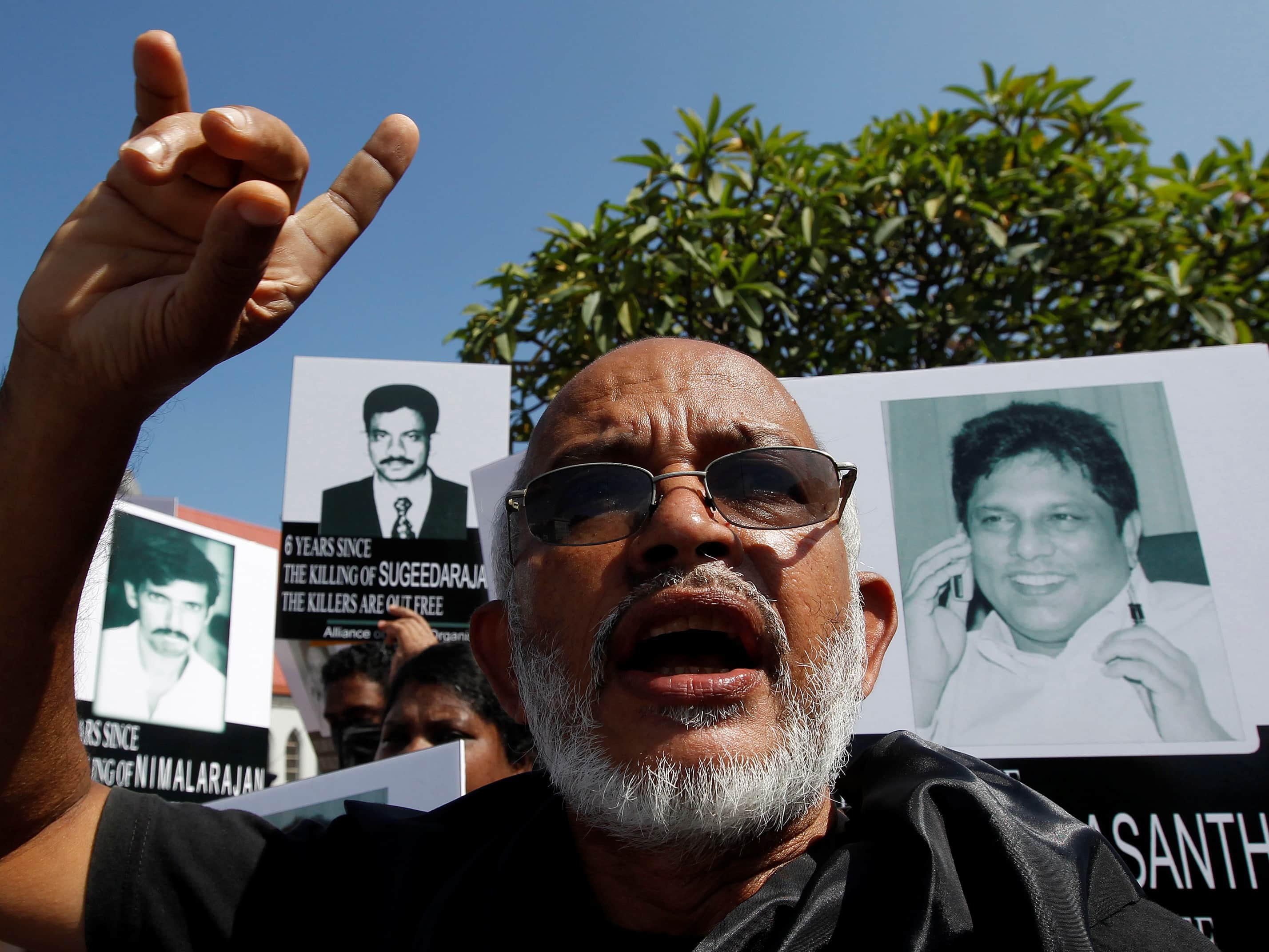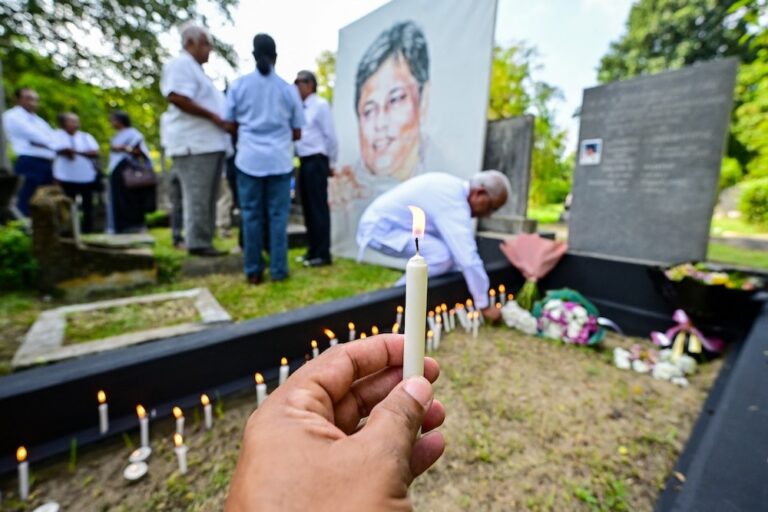On the eve of a Commonwealth Heads of Government Meeting in Sri Lanka, CPJ highlights its concern about the perilous climate of press freedom in the country.
In a November 5, 2013 letter to the Commonwealth Heads of Government, CPJ highlighted its concern about the perilous climate of press freedom in Sri Lanka.
November 5, 2013
Dear Commonwealth Heads of Government:
The Commonwealth Heads of Government Meeting (CHOGM) was set up more than 40 years ago with the aim of working together toward shared goals of democracy, freedom, peace, and the rule of law. In the past, formal meetings and private retreats at the summit have served as a platform for member states to discuss issues that affect all nations, such as apartheid in South Africa and the electoral dispute in Zimbabwe.
But as leaders from more than 50 nations converge in Sri Lanka for the biennial summit this month, we would like to highlight our grave concern about the perilous climate of press freedom in the country and urge meaningful action.
Critical or opposition journalists continue to face intense intimidation in Sri Lanka. Our research shows that at least 26 journalists have gone into exile in the past five years, which is one of the highest rates in the world. And while work-related murders have declined since 2009, the slayings of nine journalists have gone unpunished over the past decade, which is one of the worst records of impunity in the world. CPJ is investigating other cases of journalists killed in Sri Lanka to determine whether the murders were related to their work. At least one journalist has simply disappeared.
CPJ research has shown that since the end of the civil war, President Mahinda Rajapaksa’s administration has failed to prosecute a single case of a murdered journalist, including the assassination of prominent newspaper editor Lasantha Wickramatunga in 2009. Many of the victims, like Wickramatunga, had reported on politically sensitive issues in ways that were critical of the government.
Sri Lanka remains a highly unsafe place for journalists to work, a circumstance that is exacerbated when killers have impunity. We ask that in formal and private meetings with President Rajapaksa, you urge him to ensure a credible, independent investigation into the cases of disappeared and murdered journalists, make the findings public, and efficiently prosecute the perpetrators in an effort to help reverse the pattern of impunity.
Sri Lanka’s government is becoming increasingly repressive toward the press and critical voices, as U.N. High Commissioner for Human Rights Navi Pillay said following her recent visit to the country. Journalists in Sri Lanka should be able to work openly and freely without fearing for their lives. A vibrant independent press is necessary for sustainable development, long-term stability, and a healthy economy.
Thank you for your consideration.
Sincerely,
Joel Simon
Executive Director
Join CPJ’s campaign and stand up for Sri Lanka’s press
Help draw attention to Sri Lanka’s abysmal press freedom record by joining CPJ’s Thunderclap campaign.
A sample tweet: “Tell #SriLanka govt to stop assaults on press & end reign of #impunity in journalist murders. #CHOGM #SpeakJusticeNow http://thndr.it/175SbKq”



